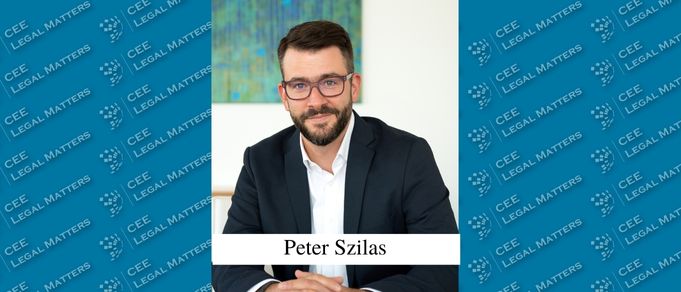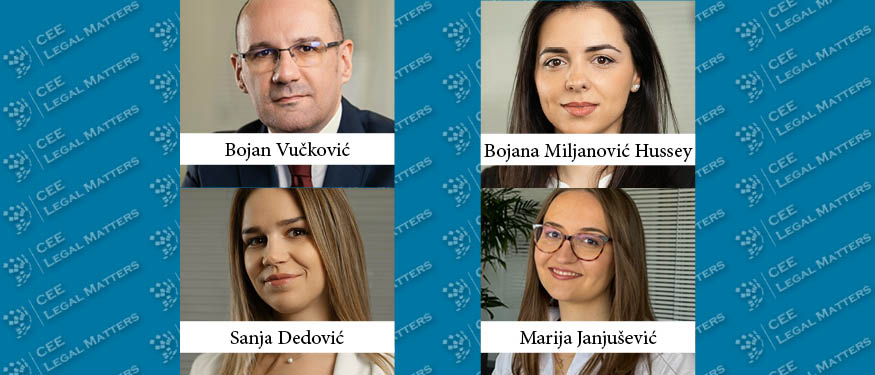Starting 1 July 2025, Hungary will implement a new procedure aimed at clarifying employment relationships and addressing cases where employers fraudulently evade taxes and social security contributions. The initiative is designed to protect employees while also reducing the administrative burden on employers.
Strategic Finance Initiatives Pave the Way for Ukraine’s Recovery and Growth
In a significant move towards economic recovery and strategic growth, Ukraine and its international partners have launched several finance initiatives aimed at mobilizing capital and transforming critical sectors. These efforts, including the United States-Ukraine Reconstruction Investment Fund and other programs announced in 2025, showcase a commitment to rebuilding Ukraine through blended finance models. This article explores these developments and their implications for Ukraine’s future.
Hungarian Court Declared a Foreign Currency Loan Invalid
In June 2025, a foreign currency (Swiss franc) loan agreement was annulled by the Pest Central District Court, since the creditor bank had failed to properly inform the debtor (who had been a consumer) about the exchange rate risk arising from the agreement. As a consequence, the whole agreement is invalid retroactively from the date of its conclusion, so that the bank is only entitled to recover the amount it lent to the debtor; beyond that, all repayments, interest and charges must be repaid to the debtor.
Bulgaria Has a Fully Operational FDI Screening Regime
The long-awaited Bulgarian foreign direct investment (FDI) screening regime is now fully operational.
FDI Screening Now Applicable in Bulgaria: Key Rules and Implications
With the adoption of the Amendment and Supplement to the Investment Promotion Act (the “FDI Act”) in March 2024, along with the publication in the State Gazette of the long-awaited secondary legislation – the Amendment and Supplement to the Rules on the Implementation of the Investment Promotion Act (the “Rules”) –on 22 July 2025, the FDI screening regime became applicable in Bulgaria. Transactions by foreign investors in the areas outlined in the law, above the set thresholds, would need to obtain FDI approval before closing.
Penalty-Imposing Courts, “Fast-Track” Lawsuits, and Streamed Hearings – A Gen Z Legal Experience in the Courtroom
A new legislative proposal aims to introduce several exciting innovations in civil litigation. The objectives include speeding up court proceedings, increasing public oversight over litigation, modernizing legal education and academic research, enhancing the Supreme Court’s (Kúria) function of ensuring legal uniformity, and reducing the administrative burden on courts related to their obligation to provide reasoning. We’ve summarized the most intriguing innovations from the proposal below.
Albania’s Data Protection Framework Expands with New DPO Registry
In a significant development for the personal data protection landscape in Albania, the Council of Ministers has adopted Decision No. 347, dated 19 June 2025, establishing a new state database titled “Electronic Registry of Data Protection Officers” (DPO Registry). This marks a major milestone in the country’s efforts to align its data governance infrastructure with international and European standards, in line with the newly reformed legal framework on personal data protection.
Signed Abroad, Stuck at Border, or the Legal Status of Foreign E-Signatures in Moldova
Global business doesn’t stop at the border. Neither do contracts. Whether it’s a financing arrangement with a Dutch fund or a supply contract with a Romanian distributor, Moldovan companies routinely deal with foreign partners, and naturally, electronic signatures have become a tool of choice. But one simple question continues to surface: are electronic signatures issued by foreign trust service providers (TSPs not qualified in Moldova) treated the same as those issued locally?
New FDI rules in Hungary
An FDI notification obligation arises if a foreign investor - whether from a third country (non-EU) or, in certain cases, from an EU Member State, EEA State, or Switzerland - acquires a shareholding or influence in a Hungarian company operating in a strategic sector, based on the Hungarian Government Decree 561/2022 (XII. 23.) on FDI rules.
Hungarian Parliament Closes Transaction Tax Loophole Used by Revolut and other Neobanks
The Hungarian Parliament adopted a tax package in June, amending the Financial Transaction Tax Act to close existing loopholes and ensure that all market participants are subject to the tax.
Changes Impacting Construction in Albania
On date 02.07.2025, with Decision No. 30, the Council of Ministers approved changes and additions to Decision no. 42, dated 16.01.2008 “On the regulation that determines the criteria and procedures for granting professional licenses for construction.”
Ukraine Streamlines Rules on Communication with Employees During Martial Law and Suspension of Employment Relations
On 14 June 2025, Law of Ukraine "On Amendments to the Law of Ukraine "On the Organisation of Labour Relations under Martial Law" Regarding Information Exchange and Suspension of Employment Agreements" (the "Law") entered into force.
Amendment to the K-ROG: Effects on Wind Energy in Carinthia
The legal framework for the construction of wind turbines in Carinthia, Austria has been fundamentally altered by the latest amendment to the Carinthian Spatial Planning Act[1] (Kärntner Raumordnungsgesetzes, K-ROG). The amendment introduces several significant (temporary) changes that affect various aspects of the approval and construction of wind turbines.
Insolvency in Czech Law: What Creditors and Debtors Should Know
Czech insolvency law provides multiple options for resolving corporate insolvency. Alongside liquidation and reorganisation—which aim to wind down or rehabilitate a business—the law also offers preventive restructuring tools. These early intervention mechanisms allow a company to address temporary financial difficulties without initiating formal insolvency proceedings.
New Insurance Rules: Hungarian Chamber of Commerce and Industry Starts Enforcing Contractor Liability Coverage
Based on the provisions of Act C of 2023 on Hungarian Architecture (Hungarian Architecture Act), which entered into force on 1 October 2024, the liability insurance rules for contractors have changed. Contractors may now only undertake construction activities for which they have compulsory contractors' liability insurance, in addition to the previously introduced investments, subject to simple notification.
Moldova: Legal Monitoring Report
This Legal Monitoring Report highlights key legislative developments in Moldova, including the launch of a grant program for tech start-ups, proposed excise duty reductions for small producers, extended paternity leave, enhanced protections for minor employees, regulation of temporary agency work, and time limits on meal voucher usage. Tax updates feature a new regime for freelancers, extended deductions for rural tourism and sports facilities, broader non-taxable income categories, and incentives for SMEs.
Latvia Tightens Criminal Liability for Sanctions Violations
On 10 June 2025 Latvia completed the transposition of Directive (EU) 2024/1226 by amending three key statutes: the Criminal Law, the Law “On the Procedures for the Coming into Force and Application of the Criminal Law,” and the Law on International and National Sanctions of the Republic of Latvia.
Competition Law Breaches Affecting Labour Markets: Major EUR 329 Million Fine for Delivery Hero and Glovo
On 2 June 2025, the European Commission (“EC”) imposed a substantial EUR 329 million fine on Delivery Hero and Glovo for their involvement in a cartel in the online food delivery sector.






































